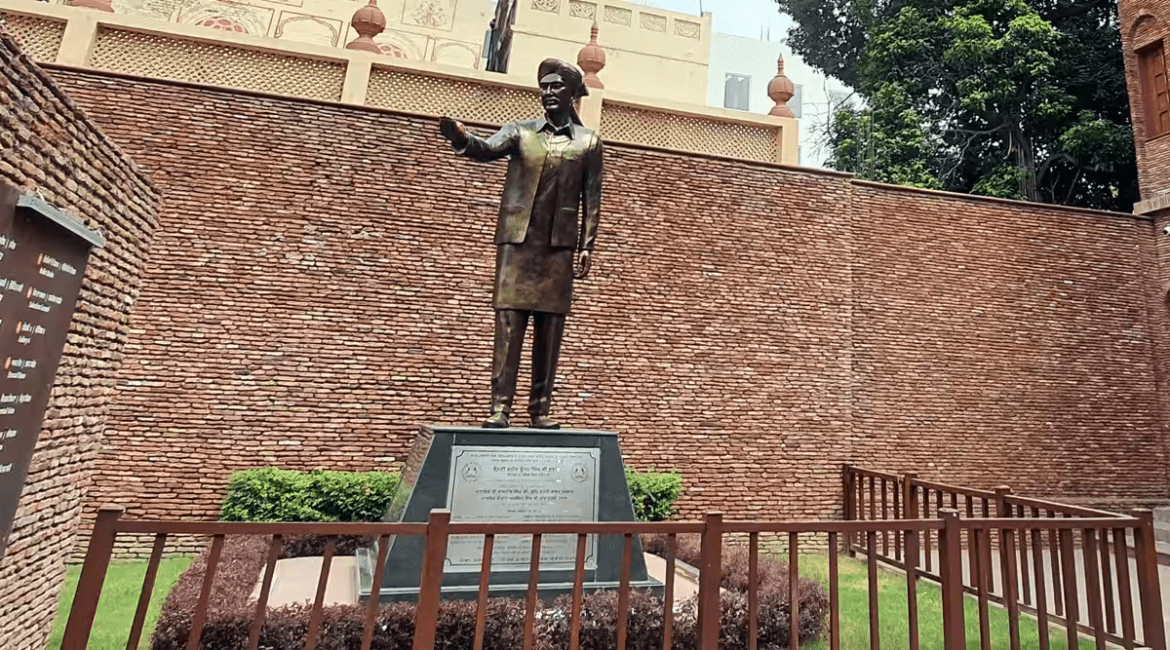AI Generated Summary
- He meticulously planned the act for years, culminating in his single-handed retaliation on March 13, 1940, at a gathering of the East India Association and the Central Asian Society (now Royal Society for Asian Affairs) at Caxton Hall, London.
- Born Sher Singh on December 26, 1899, into a Kamboj Sikh family, Singh was left orphaned at a young age and was raised, along with his elder brother Mukta Singh, in Central Khalsa Orphanage Putlighar in Amritsar.
- Singh’s bold act was in retribution for the horrific Jallianwala Bagh massacre of 1919, where Dwyer’s ruthless orders led to the slaughter of hundreds and injury to thousands of Indians in Punjab.
On the last day of July, we commemorate the life and the courageous sacrifice of Udham Singh, a true hero of Punjab and India. Born Sher Singh on December 26, 1899, into a Kamboj Sikh family, Singh was left orphaned at a young age and was raised, along with his elder brother Mukta Singh, in Central Khalsa Orphanage Putlighar in Amritsar. It was there that he underwent the Sikh initiatory rites and received the name Udham Singh. A figure of immense bravery and patriotism, Singh was posthumously honoured with the title of Shaheed-i-Azam, in recognition of his selfless dedication to his nation.
July 31, 1940, marks the tragic end of this freedom fighter’s life, executed after assassinating General Michael O’ Dwyer, the former lieutenant governor of Punjab. Singh’s bold act was in retribution for the horrific Jallianwala Bagh massacre of 1919, where Dwyer’s ruthless orders led to the slaughter of hundreds and injury to thousands of Indians in Punjab.
Singh’s assassination of O’Dwyer was a calculated act of vengeance for the Jallianwala Bagh massacre. He meticulously planned the act for years, culminating in his single-handed retaliation on March 13, 1940, at a gathering of the East India Association and the Central Asian Society (now Royal Society for Asian Affairs) at Caxton Hall, London. Singh had cleverly concealed a revolver inside a hollowed-out book and fired two shots at O’Dwyer at the conclusion of the meeting, instantly killing him.
Here are some intriguing insights into the life of this national hero, Sardar Udham Singh:
Following his act of defiance, Singh willingly surrendered and was detained in Briston prison.
Singh shared a close camaraderie with fellow patriot Shaheed Bhagat Singh, whom he revered as his ‘guru’, and lived by his teachings.
Singh’s name became synonymous with the struggle for Indian Independence, often referred to as Shaheed-i-Azam Sardar Udham Singh.
In a symbolic act of unity, Singh adopted the alias Ram Mohammad Singh Azad during his detention after assassinating O’Dwyer, representing the three predominant religions of India.
In homage to Singh, the Indian state of Uttarakhand named a district after him, known as Udham Singh Nagar.
In 1974, Singh’s mortal remains were repatriated to India and are now preserved at Jallianwala Bagh in Amritsar.
The artefacts related to Singh’s act of rebellion, including the knife, diary, and bullets he used to kill General Dwyer, are displayed at the Black Museum in Scotland Yard. During his imprisonment, Singh undertook a 42-day hunger strike, compelling the authorities to resort to forced feeding. His life ended on the gallows at Pentonville Prison on July 31, 1940, but his legacy lives on as an inspiring tale of courage and patriotism.




